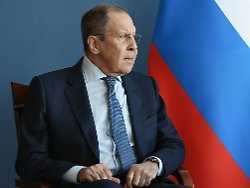Kremlin shows little optimism
Moscow responds to NATO responses for the first time
1/27/2022 1:02 p.m
The West’s response to key Kremlin demands does not seem to be met with enthusiasm. There is “no positive reaction to the main topic in this document,” says Foreign Minister Lavrov, with a view to NATO’s eastward expansion.
The Kremlin has reacted cautiously to NATO and US responses to Russian demands for security guarantees. “Yesterday you heard the statements of the US Secretary of State and the NATO Secretary General, in which they spoke absolutely unequivocally about the rejection of fundamental concerns expressed by Russia,” Kremlin spokesman Dmitry Peskov said, according to the Interfax agency. “On that basis, there isn’t much reason for optimism. I would still refrain from making any conceptual assessments.”
President Vladimir Putin has already read the US letter. Peskov initially left open exactly when Moscow would respond to the documents. “Of course, it takes some time to analyze them.”
Foreign Minister Sergei Lavrov, looking at the US response, said: “There is a reaction in it that allows us to expect the start of serious talks, but on secondary issues. There is no positive reaction to the main topic in this document. ” Lavrov announced that Russia will soon send an official request to the United States and all western OSCE countries, which is why they are ignoring security obligations.
Talks have already taken place between Russia and the Organization for Security and Co-operation in Europe (OSCE). On Wednesday, NATO and the United States responded in writing to Moscow’s demands for guarantees of security in Europe. When Russia demanded commitments to end NATO’s eastward expansion, neither NATO nor the USA showed any willingness to negotiate.
US Secretary of State Blinken referred to “core principles”, such as the free choice of alliances between states and the sovereignty and territorial integrity of Ukraine. Moscow sees its security threatened by NATO’s eastward expansion. In particular, the Kremlin wants to prevent Ukraine from being included in the western defense alliance. The US and NATO, in turn, suspect Russia of planning an invasion of neighboring Ukraine.
The Kremlin rejects this. Parallel to the demands on the West, Moscow has massed troops on its own territory on the border with Ukraine.
